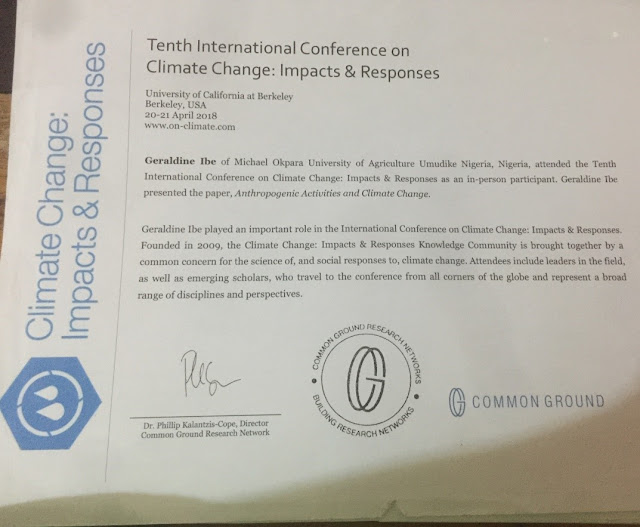The Climate Impacts
Research Capacity and Leadership Enhancement (CIRCLE) programme is an
initiative of the UK’s Department for International Development (DFID). Managed
by the Association of Commonwealth Universities (ACU), the programme is a
response to the shortage of local scientists contributing to knowledge on the
impacts of climate change on local development in sub-Saharan Africa.
Maximising the potential impact of the research conducted under CIRCLE has been
a key priority for the programme, leading to the launch of the CIRCLE Research
Uptake Fund. This fund has been designed to provide financial support to fellows
to enable them to conduct activities related to ensuring their research reaches
potential users and other stakeholders.
My research activities under CIRCLE are on climate
change, plant- parasitic nematodes (PPN) and smallholder agriculture. Plant-parasitic
nematodes are microscopic worms that feed on plant parts and are a major
constraint to crop production. Development, lifecycle, infectivity,
geographical distribution and abundance of PPN is affected by changes in
temperature and moisture. This is due to the fact that PPN growth and
reproduction is directly related to these environmental factors. Climate change
may result in an increase in PPN abundance and an expansion of the geographical
distribution range which may have a detrimental impact on crop production in
Kenya.
 |
| Smallholder farmers in a maize field in Mwea, Kenya during a research uptake activity. Photo: Hannah Karuri |
Smallholder farmers are not aware of the impact
of PPN on crops due to the fact that, PPN are microscopic and the symptoms that
they cause are often confused with nutrient deficiency and other abiotic
stresses. Therefore, my activities under the CIRCLE Research Uptake Fund involved
training farming communities in Embu and Mwea regions of Kenya on PPN and farming
techniques that can be used to reduce PPN population in crop fields. Through collaboration with local and national
agricultural institutions, groups of smallholders were trained on use of low
cost PPN management techniques such as planting nematode resistant crop
varieties, application of organic manure and intercropping. These techniques had
been previously tested and proven to be more sustainable and cost effective
compared to application of nematicides. The farming techniques will reduce
damage caused by PPN and subsequent crop yield losses, thereby improving
smallholders’ livelihoods. Since nematode damage affects the quality of some
crops such as sweet potato, reducing PPN will also improve quality of
marketable roots.
 |
| Smallholder farmers in a maize field in Mwea, Kenya during a research uptake activity. Photo: Hannah Karuri |
Farming communities were also sensitized on the
future impact of climate change on abundance and distribution of nematodes and
the predicted effect on yields. Demystifying climate change to smallholders is
a challenge due to the strong influence of traditional and religious beliefs. Through the research uptake fund, information on
climate change and its impact on agriculture was provided to smallholders in
Mwea and Embu through reading materials that were written in a language that
was simple and clear. Training of smallholders on low cost nematode management
techniques will be done in other Kenyan regions as follow-up activities in
order to sustain the farming practices that were introduced to smallholders in
the two regions.
For
further information on CIRCLE and the CIRCLE Research Uptake Fund, please
contact George Lakey at George.Lakey@acu.ac.uk





























